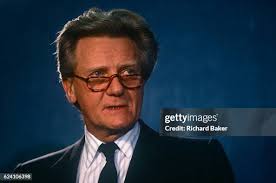The Political Legacy of Michael Heseltine

Introduction
Michael Heseltine, a prominent British politician, has been an influential figure in shaping modern Conservative Party policies and governance. His extensive career has seen him occupy key positions within the UK government, most notably as Deputy Prime Minister from 1995 to 1997. Understanding Heseltine’s contributions and ideologies is crucial for grasping the evolution of British politics, especially during the tumultuous years of the 1980s and 1990s.
Illustrious Career and Achievements
Born on March 21, 1933, in Cardiff, Wales, Michael Heseltine began his career in publishing before entering politics. He was first elected as the Member of Parliament for Henley in 1966. His rise to prominence came during the leadership of Margaret Thatcher, where he was a key ally in implementing radical economic reforms, including privatisation and deregulation initiatives.
Throughout the 1980s, he held various ministerial positions such as Minister for Defence Procurement and Secretary of State for the Environment. His tenure as Secretary of State was marked by the controversial and transformative ‘Heseltine Plan’, aimed at regenerating urban areas across Britain, showcasing his commitment to regional development.
The Deputy Prime Minister Role
After the Conservative Party faced a challenging period, Heseltine returned to forefront politics when he was appointed Deputy Prime Minister under John Major’s leadership. During this time, he played a pivotal role in responding to economic crises, as well as managing tensions within the party, particularly regarding European integration. His strong pro-European stance often put him at odds with more Eurosceptic elements within the party.
Recent Developments
In recent years, Michael Heseltine has remained an active commentator on political affairs, particularly regarding Brexit and the future of the Conservative Party. His advocacy for a ‘people’s vote’ on the final Brexit deal has highlighted his belief in the importance of democratic engagement and consultation with the public. In 2022, at the age of 89, he has continued to be a vocal critic of the fragmented state of UK politics and has called for unity and pragmatic governance.
Conclusion
Michael Heseltine’s political journey reflects a commitment to public service and an unwavering belief in the potential for Britain to thrive through progressive policies. As the UK continues to navigate the complexities of post-Brexit governance, Heseltine’s insights and experiences will likely remain significant in discussions about the future. With a legacy rich in achievements and challenges, he serves as an enduring reminder of the requires balancing tradition with innovation in British politics.









